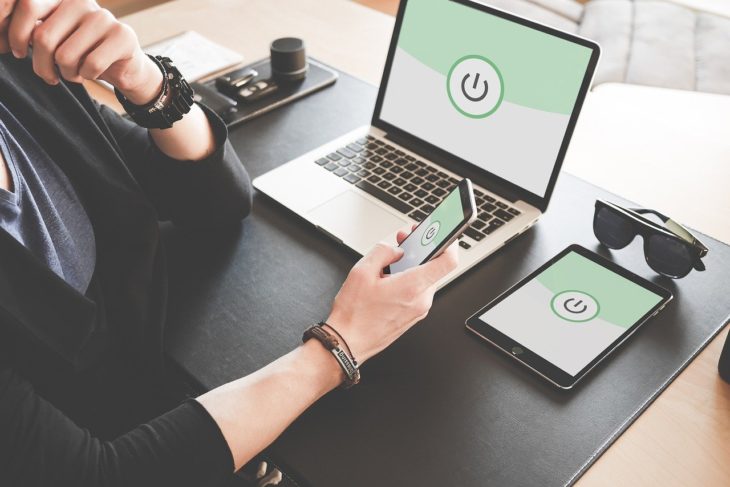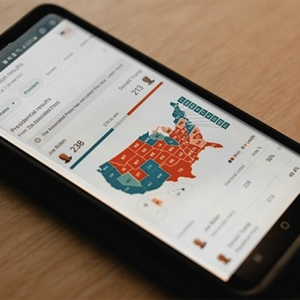
Choosing among these top Canadian virtual private networks (VPNs) is one of the best decisions you can make in 2020. Read on and learn how using a VPN in Canada can help you:
- Keep your privacy intact
- Secure your online data
- Unblock shows from all around the world
- Save money online
Yep, all this with just one app on your phone, desktop PC, and other compatible devices.
#1 Surveillance Is a Problem
The NSA has become synonymous with excessive government surveillance, so it’s unsurprising that people think of it as an inherently American problem. But make no mistake – just because the US is one of the largest “players” in this game of spies, it’s certainly not the only one.
Just take a look at the Anti-Terrorism Act of 2015. This act gave the Canadian Security Intelligence Service (CSIS) even more unfettered access to your private conversations. Moreover, Canada is part of the “Five Eyes” alliance, whose intelligence agencies share their citizens’ data among themselves. These two facts perfectly illustrate why using a VPN in Canada is essential nowadays – to preserve your civil liberties, because apparently the Charter isn’t enough to do so.
Since VPNs encrypt your network traffic and communications, third parties can’t snoop in on your online activities. Not cyber criminals, not your ISP, not even the CSIS. This lets you regain some of your privacy in a world where Big Brother is no longer fiction.
#2 Cyber Attacks Are on the Rise
Since we’ve mentioned cyber criminals, it’s worth talking about the recent increase in Coronavirus scams, which cost Canadians more than $1.2 million. Sure, most of the scams involved phishing type attacks, meant to trick victims into handing out their data themselves.
This hasn’t stopped hackers from abusing free public Wi-Fi to get a hold of Canadians’ banking info, email accounts, and other private data. It’s even worse when you consider that 53% of Canadians can’t tell the difference between a secured and unsecured Wi-Fi hotspot.
Not that it matters, seeing as “Evil Twin” hotspots set up by hackers are sometimes virtually indistinguishable from the real thing. When they don’t harvest your data through these fake networks, cyber attackers like to exploit vulnerabilities found in the latest Wi-Fi encryption protocols. This lets them gain access to your data just as easily as if the hotspot didn’t have a password.
Luckily, using a VPN can help you prevent data theft in all these situations. That’s because your data is encrypted before it leaves your device. Even a hacker trying to snoop through your traffic on an Evil Twin network will just see gibberish.
#3 Unlock a World of Entertainment
Let’s move away from the doom and gloom of using a VPN in Canada and talk about something fun for a change; like your favorite TV shows, and how they’re often exclusive to other countries. For example, It’s Always Sunny in Philadelphia (IASIP) is only available on Netflix in the UK only or Hulu – a strictly US-based streaming platform.
And that’s just one example. According to Statista, the US has about 200 extra Netflix shows and movies when compared to Canada. Regional exclusives may vary, so the US doesn’t necessarily have all the good stuff (see IASIP) – but you’re still paying for less content.
Don’t even get us started on shows like Doctor Who. The Doctor has been hopping from one streaming service to another for these past few years, before making its way to HBO Max at the end of May 2020. If you’re not aware, HBO Max will only be available in the US. This means you can only stream the show if you’re from the US or the UK (on BBC iPlayer).
Or, you could just use a VPN and watch these exclusive shows wherever you want. Simply connect to a server in the country of your choice, and your device will switch to an IP address from that region. Streaming platforms will believe you’re in the “correct” area and offer you access to previously unavailable content. Or even the entire platform if we’re talking about BBC iPlayer, Hulu, and others.
Important note: free VPNs are often blocked by these services; and that’s not counting all the other issues they have.
#4 Avoid Price Discrimination
Changing regions with a VPN can also help you save money on online purchases. E-shops, airlines, and other online sellers often charge more in countries they perceive as having more purchasing power. Canada may have its issues, but it still cracks the top 10when it comes to leading economies worldwide.
As you can imagine, this means you’re paying more for virtual goods than, say, some countries in Central or Eastern Europe. The solution? Just connect to a VPN server in a country with a less powerful economy and you might shave a few dollars off your shopping list.
Keep in mind that sellers have other methods of keeping track of your device. If you want to increase your chances of success, try the following techniques as well:
- Don’t use a phone or tablet with location settings turned on, as that may reveal your true location even if you use VPN.
- Websites can detect VPN or proxy usage by checking if your system time corresponds to the region you’re connected to. Make sure your local system time and the VPN server’s local time are in sync to avoid this.
- Use a different browser than usual, and clear your browser cookies
- Use a separate Internet connection, such as a public hotspot. Or ask a neighbor if you could use their Wi-Fi.
- This is often a case of trial-and-error, so try switching regions if prices don’t change at first.
Aside from helping you avoid price discrimination, the first three bullet points also work as privacy best practices. If you’re using a VPN in Canada and are concerned about overreaching surveillance, then follow that advice as well.


